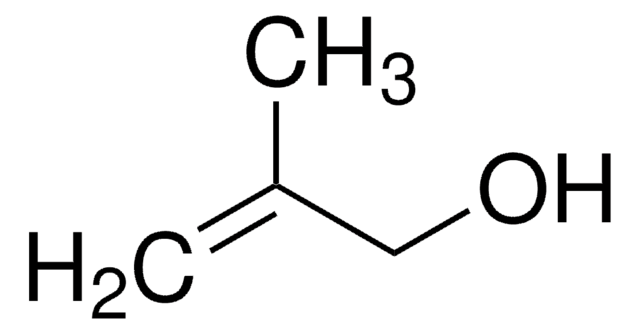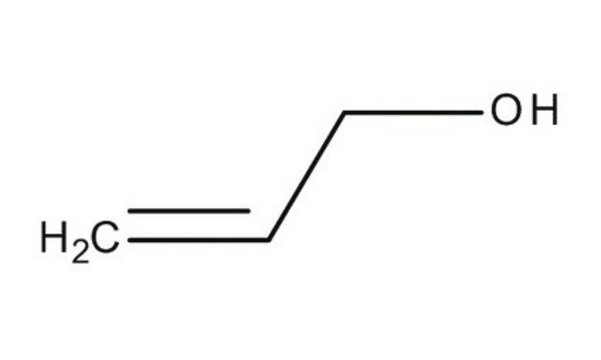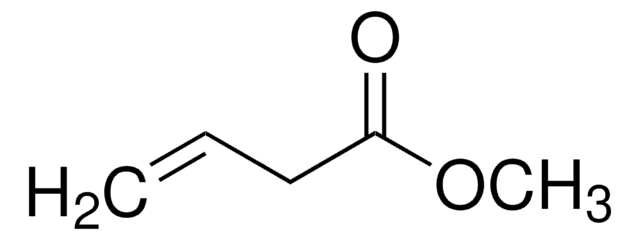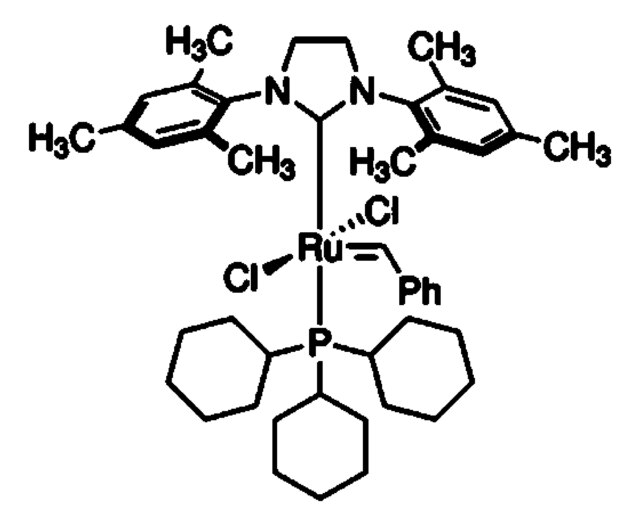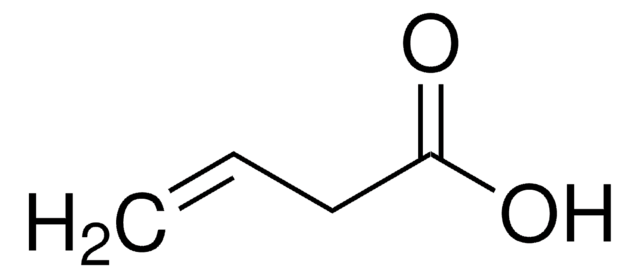About This Item
Recommended Products
vapor density
2 (vs air)
Quality Level
vapor pressure
23.8 mmHg ( 25 °C)
assay
≥99%
form
liquid
autoignition temp.
712 °F
expl. lim.
18 %
refractive index
n20/D 1.412 (lit.)
bp
96-98 °C (lit.)
mp
−129 °C (lit.)
solubility
alcohol: miscible(lit.)
chloroform: miscible(lit.)
diethyl ether: miscible(lit.)
water: miscible(lit.)
density
0.854 g/mL at 25 °C (lit.)
SMILES string
OCC=C
InChI
1S/C3H6O/c1-2-3-4/h2,4H,1,3H2
InChI key
XXROGKLTLUQVRX-UHFFFAOYSA-N
Looking for similar products? Visit Product Comparison Guide
Related Categories
General description
Application
signalword
Danger
Hazard Classifications
Acute Tox. 2 Dermal - Acute Tox. 3 Inhalation - Acute Tox. 3 Oral - Aquatic Acute 1 - Aquatic Chronic 3 - Eye Irrit. 2 - Flam. Liq. 2 - Repr. 2 - Skin Irrit. 2 - STOT SE 3
target_organs
Respiratory system
Storage Class
3 - Flammable liquids
wgk_germany
WGK 3
flash_point_f
71.6 °F - closed cup
flash_point_c
22 °C - closed cup
ppe
Eyeshields, Faceshields, Gloves, type ABEK (EN14387) respirator filter
Certificates of Analysis (COA)
Search for Certificates of Analysis (COA) by entering the products Lot/Batch Number. Lot and Batch Numbers can be found on a product’s label following the words ‘Lot’ or ‘Batch’.
Already Own This Product?
Find documentation for the products that you have recently purchased in the Document Library.
Customers Also Viewed
Our team of scientists has experience in all areas of research including Life Science, Material Science, Chemical Synthesis, Chromatography, Analytical and many others.
Contact Technical Service


